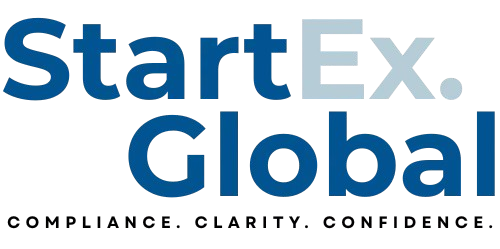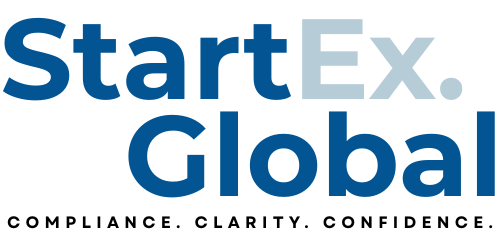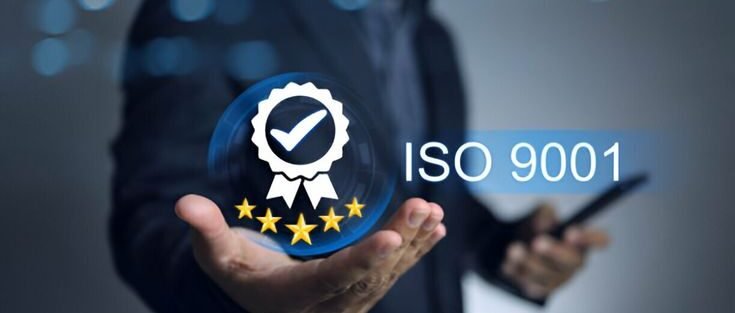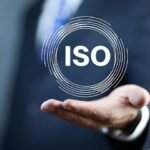Key Trends in ISO Certification for 2025: What Organizations Need to Know
ISO certification 2025 remains a major mark of quality, trust, and operational excellence for businesses of all sizes. As we move deeper into 2025, several evolving trends are reshaping how organizations pursue, maintain, and benefit from ISO standards. This blog explores the key trends in ISO certification for 2025, why they matter, and how businesses can adapt.
1. Digital Transformation & Remote Auditing
One of the most prominent trends in ISO certification this year is the growing use of digital technologies. Many organizations and certification bodies are embracing remote audits and virtual assessments to reduce travel, cut costs, and enhance flexibility.
- Remote audits allow auditors to review documentation, processes, and controls without being physically present, aided by tools like video conferencing, secure file sharing, and digital dashboards.
- Digitization of documentation: Cloud-based documentation systems, integrated management platforms, paperless workflows are increasingly common.
- Data analytics and AI are helping identify potential non-conformities in advance, providing predictive insights, enabling continuous monitoring rather than just periodic checks.
Why it matters: remote and digital auditing increases accessibility for smaller organizations or those in remote locations. It can also speed up certification cycles and reduce overheads, making ISO certification more affordable and manageable.
2. Sustainability, ESG & Environmental Obligations
Environmental, Social, and Governance (ESG) factors are no longer optional add-ons; they are central to business strategy and accountability. ISO standards—both existing and in revision—are increasingly aligning their requirements with sustainability goals.
- ISO 14001 (Environmental Management) and ISO 50001 (Energy Management) have seen higher adoption as companies aim to reduce carbon footprint and energy consumption.
- The forthcoming revisions of other standards (e.g., ISO 9001) will include stronger emphasis on environmental risk, social impact, ethical sourcing and supply chain sustainability.
- Stakeholders (investors, customers, regulators) are demanding transparency and measurable metrics on environmental performance.
This trend means organizations must embed environmental and social responsibility into their quality and management systems—not as separate initiatives, but as integrated components.
3. Risk-Based Thinking, Resilience & Supply Chain Management
Risk was already part of many ISO standards, but in 2025 there’s a stronger push toward proactive and holistic risk management.
- Supply chain disruptions (due to pandemics, geopolitical tension, climate events) have shown the importance of resilient supply chains. ISO certifications are being looked at for guidance in assessing and mitigating supply chain risk.
- Business Continuity Management (ISO 22301) is gaining relevance: organizations want to ensure they can maintain operations during disruptions.
- Cybersecurity risk and data privacy are now often part of risk assessments under management systems. Interlinked risks (environmental, cyber, social) are being considered together.
Organizations that adopt risk-based thinking not only avoid losses but also gain agility—able to respond quickly to change, maintain reputation, and satisfy regulatory or customer demands.
4. Simplification, Integration & Accessibility for SMEs
Another major trend is making ISO certification more accessible, especially to small and medium-sized enterprises (SMEs). Some ways this is happening:
- Integrated Management Systems (IMS): combining ISO standards like ISO 9001 (Quality), ISO 14001 (Environment), ISO 45001 (Safety) etc., so that audits, document control, internal reviews are streamlined.
- Simplified or modular approaches: smaller organizations are looking for core components first, then gradually adding more.
- Remote and digital audits (as above), lower cost consultancies, online training modules make the process less resource-intensive.
This trend helps SMEs compete better, meet customer expectations, and align with regulatory requirements without overwhelming cost or complexity.
5. Emphasis on Ethical Leadership, Organizational Knowledge & Culture
ISO certification in 2025 is not just about processes, documents, or audits—it’s increasingly about people, culture, leadership, and ethical behavior.
- Standards are emphasizing top management commitment more explicitly: leaders must champion quality, ethics, sustainability, and continuous improvement.
- Organizational knowledge: how companies capture, retain and share knowledge, train employees, manage competencies is a growing focus.
- Ethical business practices—fair labor, transparency, anti-corruption—are expected more across industries, especially those with global supply chains.
A culture of quality, where employees understand and own the processes, tends to produce better and more sustainable results than purely compliance-oriented implementation.
6. Emerging Technologies & Their Impact
Technological change is impacting ISO certification in multiple ways:
- Use of AI and Machine Learning in process control, anomaly detection, forecasting quality issues before they materialize.
- IoT (Internet of Things) devices generating real-time data for monitoring quality, environmental parameters, safety metrics, etc.
- Blockchain or distributed ledger technologies being tested in some sectors for transparency, traceability of audits, supply chain origin and integrity.
Organizations that adopt these technologies thoughtfully can enhance their ISO processes, gain more reliable data, reduce reactive problem solving, and show innovation in their certification journeys.
7. Regulatory Pressure & Market Demand
Customer expectations, regulatory standards, and global trade demands are pushing ISO certification from “nice to have” toward “must have” in many sectors.
- Governments and large corporations increasingly make ISO certification a requirement for tenders, procurement contracts, or partnerships.
- Export-oriented companies need certifications to meet international standards in their industry or market.
- There is rising regulatory scrutiny regarding mis-represented or fraudulent ISO certificates; companies need to ensure their certifications are valid, maintained, and credible.
Thus, having accurate, up-to-date ISO certification isn’t just good for internal quality—it also protects from reputational and legal risk.
What Organizations Should Do to Leverage These Trends
Here are practical steps that businesses of all sizes can take to stay ahead with ISO certification in 2025:
Audit your current systems
Review your existing ISO certifications or processes. Identify gaps in sustainability, digital capability, risk management, or leadership involvement.Adopt digital tools
Move documents, process workflows, compliance tracking to digital, cloud-based platforms. Use analytics for continuous improvement. Explore remote audit readiness.Plan integration
If you hold multiple ISO standards (quality, environment, safety etc.), consider an Integrated Management System to reduce redundancy, streamline audits, lower cost.Strengthen leadership and culture
Ensure top management is involved, clearly communicates quality and ethical values. Train employees in quality principles, risk awareness, sustainability.Stay current on standard revisions
Monitor ISO revisions (e.g. the upcoming ISO 9001:2026) and how they embed new themes. Be ready to transition when updates become mandatory.Focus on supply chain and risk mapping
Identify critical suppliers, map out dependencies, test contingency plans. Include cyber risk and environmental risks in assessments.Make certification accessible
SMEs especially should explore modular or phased certification, remote audits, affordable consultancies, and online learning.
Conclusion
In 2025, ISO certification is evolving from being primarily about documentation and periodic audits to being a more dynamic, integrated, and strategic tool. Trends like digital transformation, sustainability alignment, risk-based thinking, ethical leadership, and accessibility for smaller players are reshaping what good ISO compliance looks like.
Organizations that adapt to these trends will likely see greater value from their ISO certifications: reduced costs, stronger credibility, increased resilience, and better alignment with stakeholder expectations. As the ISO landscape shifts, being proactive instead of reactive will be a key difference between organizations that merely comply and those that thrive.





